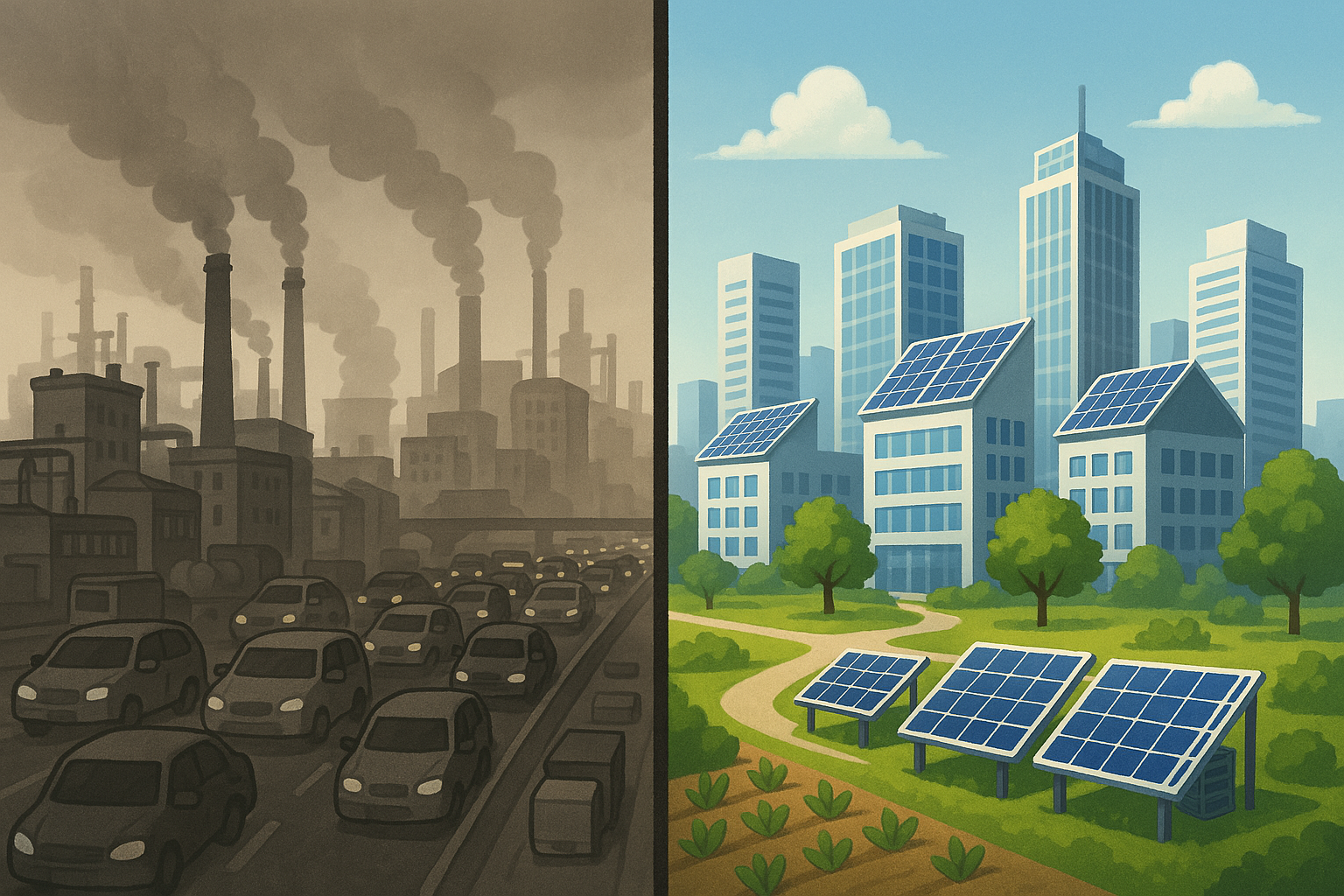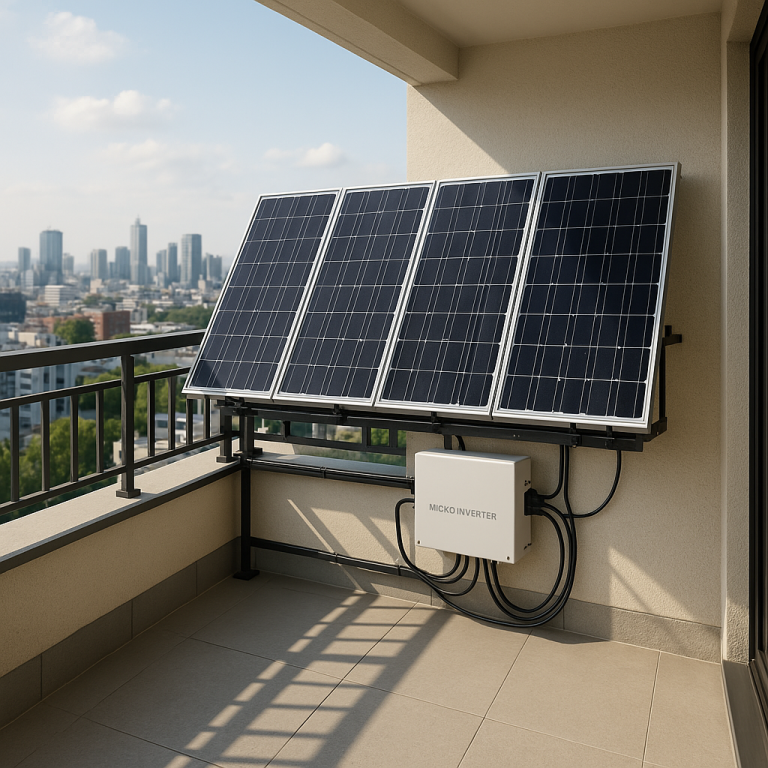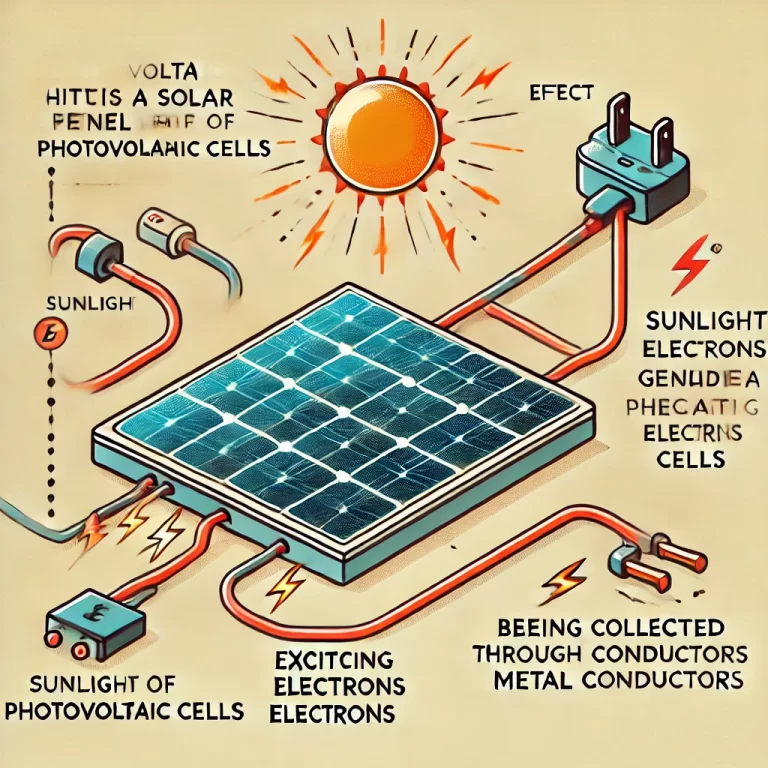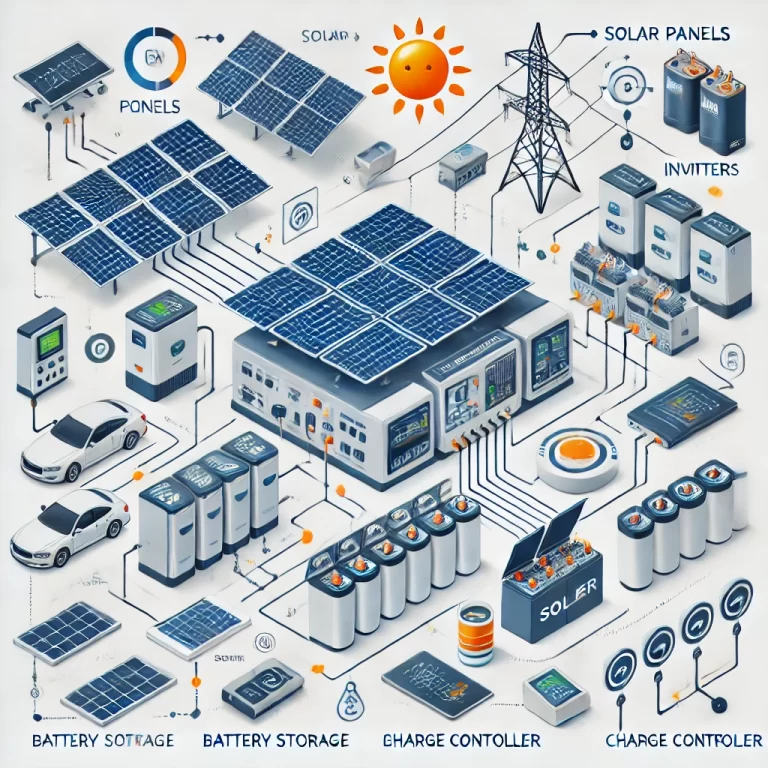1. Significant Reduction in Greenhouse Gas Emissions
Solar power systems produce electricity without releasing carbon dioxide (CO₂) or other harmful greenhouse gases. According to the International Energy Agency (IEA), switching from coal-based power to solar can reduce up to 1,000 grams of CO₂ per kilowatt-hour generated. Over a system’s lifetime, this equates to tens of tons of CO₂ avoided per household.
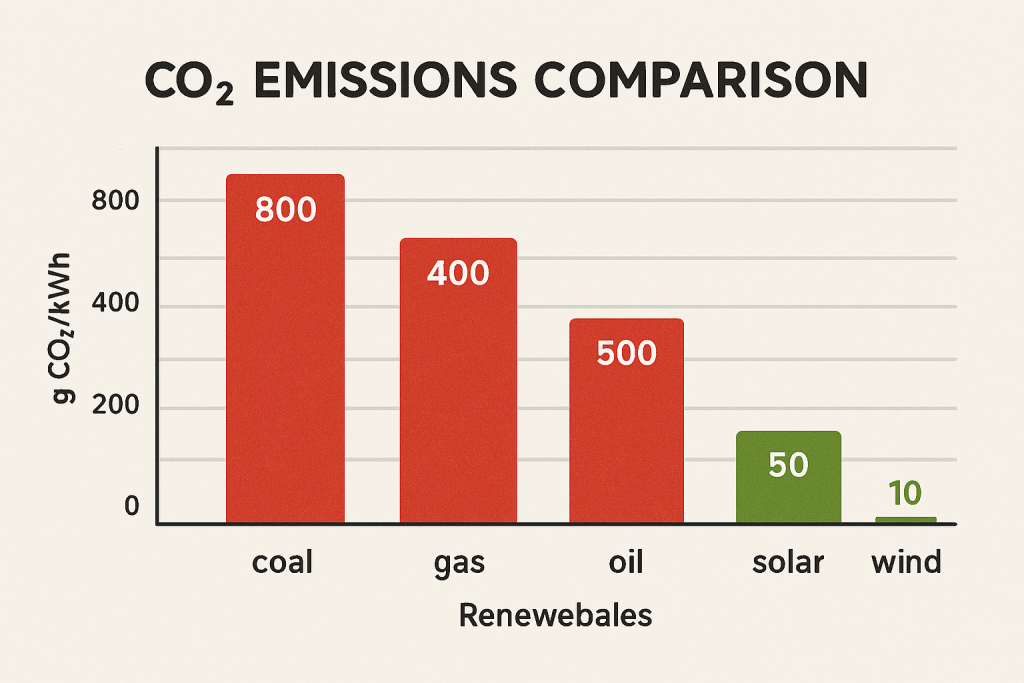
2. Solar Energy Reduces Air and Water Pollution
Fossil fuel power plants not only emit carbon but also release particulate matter, nitrogen oxides, and sulfur dioxide, which contribute to smog and acid rain. Solar energy, by contrast, does not emit these pollutants, improving air quality and public health.
Moreover, solar photovoltaic (PV) systems require no water to generate electricity, unlike coal or nuclear plants that consume millions of liters daily for cooling.
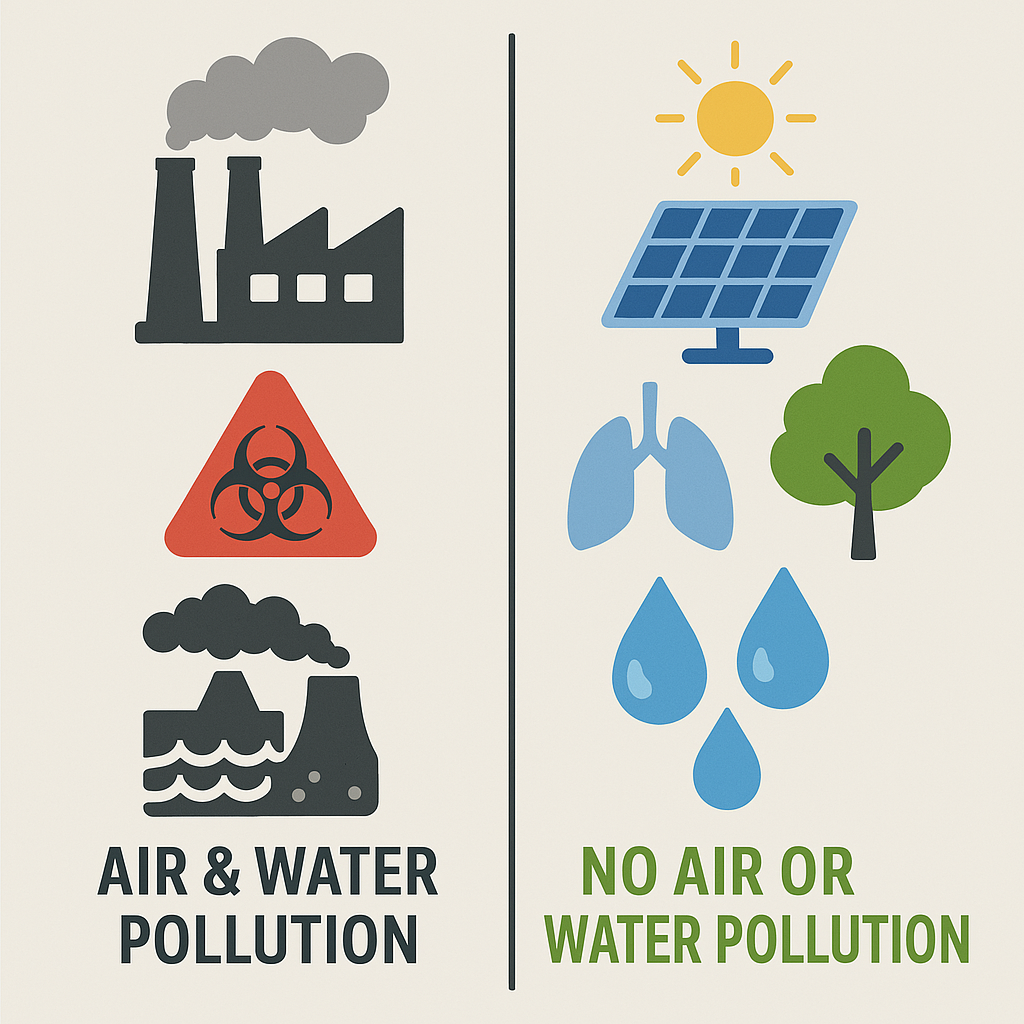
3. Mitigating Climate Change Through Decentralized Power
Rooftop and balcony solar systems allow for decentralized energy generation, reducing transmission losses and minimizing reliance on fossil-fueled grid infrastructure. In areas prone to blackouts or grid overloads, solar-plus-storage systems can ensure stable, low-impact energy use.
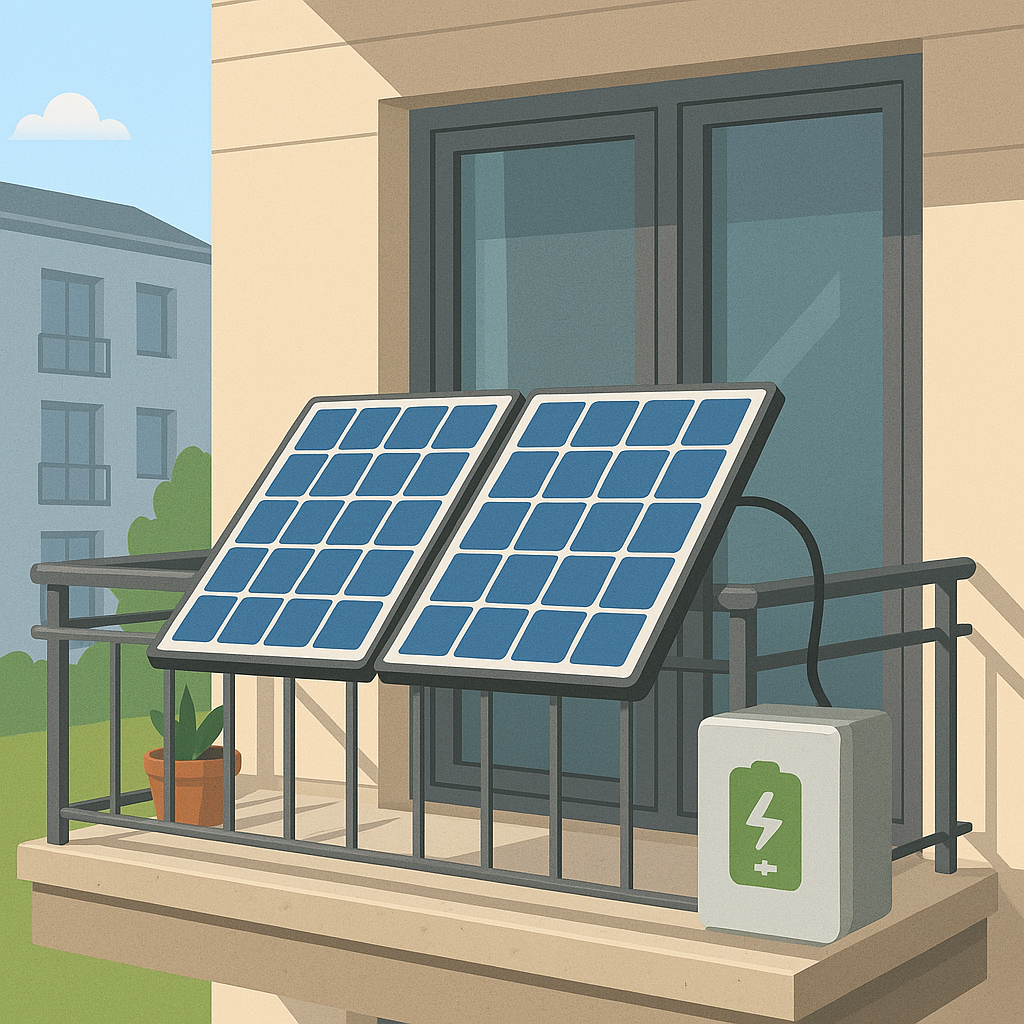
4. Promoting Sustainable Land Use and Biodiversity
Ground-mounted solar farms can be developed on underutilized land, such as brownfields or deserts. Dual-use models like agrivoltaics allow for both solar production and agricultural activity on the same land, preserving local ecosystems and improving land productivity.
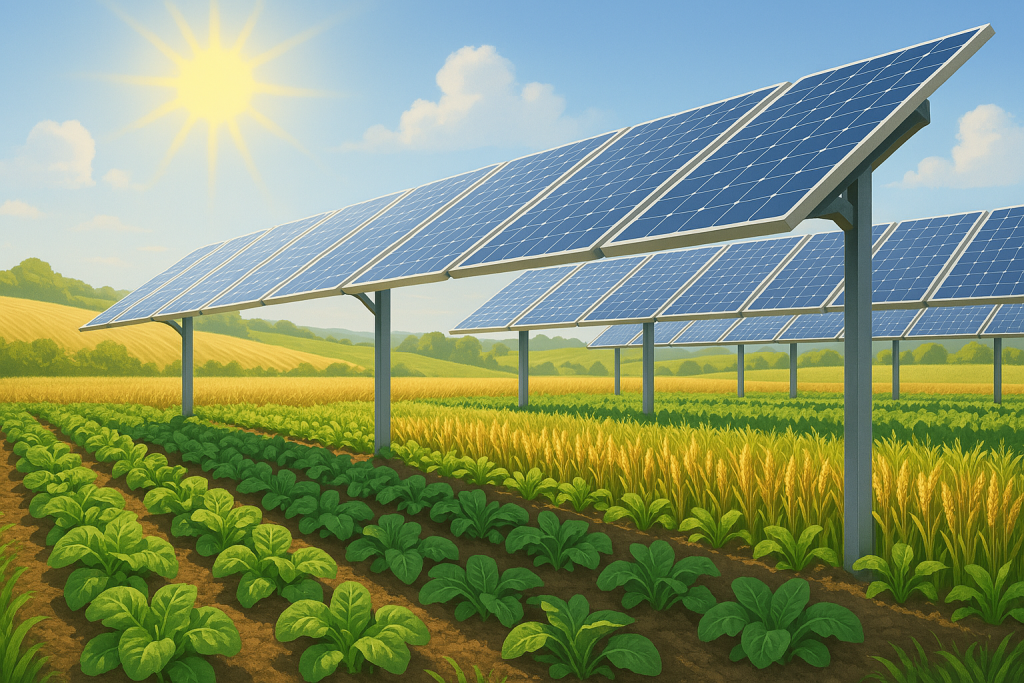
5. Reducing the Carbon Footprint of Manufacturing
While solar panel production does consume energy, modern manufacturing processes are increasingly powered by renewable sources themselves. Lifecycle studies show that a solar panel can offset the energy used in its production within 1–2 years, while continuing to generate clean power for 25 years or more.
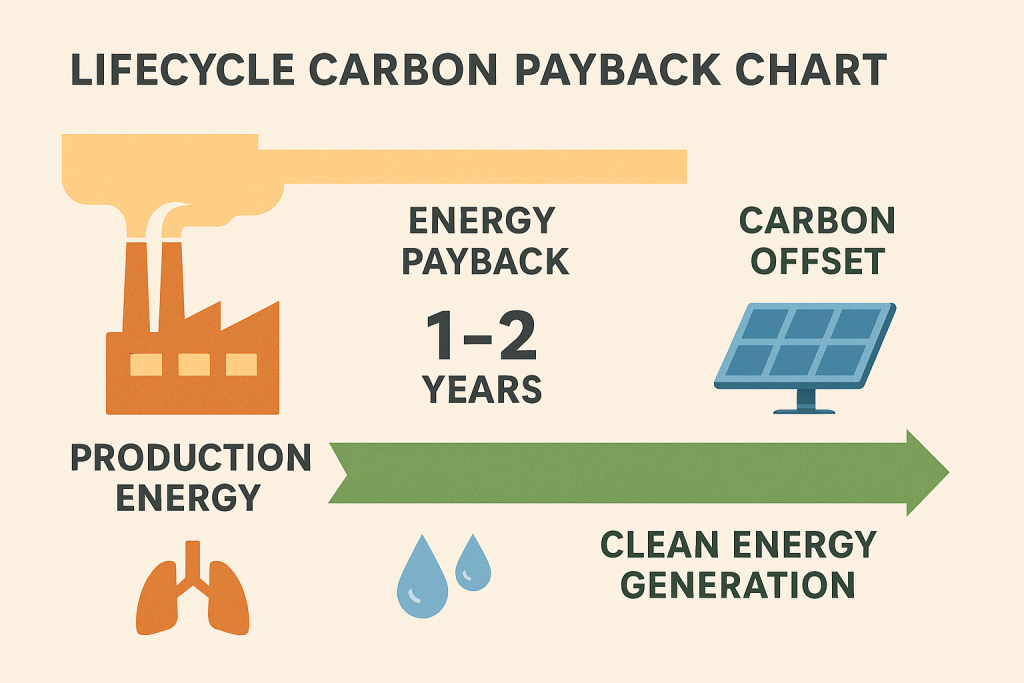
Conclusion: A Cleaner Planet, One Panel at a Time
Switching to solar energy isn’t just about saving money — it’s a powerful step toward protecting the planet. By reducing emissions, conserving resources, and enabling sustainable energy systems, solar power is reshaping how we generate and consume electricity. Every panel installed contributes to a healthier, greener world.

